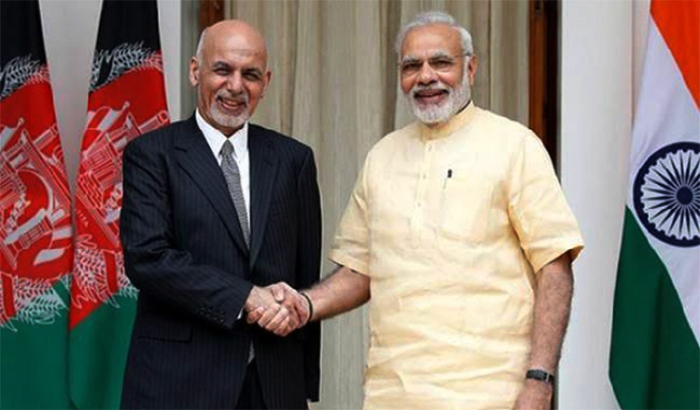Jammu, Apr 15: Deepika Singh Rajawat, an advocate in Jammu, who faced the wrath of Hindutva politics after taking up the case of temple gang-rape, says that her fight is not just for the 8-year-old child who was raped but for all children including her daughter.
“That is my daughter. She is five years old and her name is Ashtami. I am fighting this case also for her,” says Rajawat showing the framed photograph of a chubby, smiling girl on the desk in a small room of her house in Jammu.
Within days after Rajawat took up the case of the 8-year-old Bakarwal girl who was drugged and gang-raped for a week in a temple and murdered in January, she began getting threats to stay away. Many from the Bar took to the streets — some brandishing sticks — and shouted slogans against the state government, asking that the case be transferred from the J&K police’s crime branch to the CBI.
Not one to be cowed into silence, she went on Facebook a day after the incident on April 5 and wrote: “The president of the Jammu High Court Bar Association mistreated me. He used unparliamentary language and threatened me not to appear in cases during a strike by the lawyers.”
Showing the copy of a letter she received from the Jammu & Kashmir HC on Saturday that asks the in-charge of the security wing of the court to provide her protection during her appearances, she said, “But when I confronted the senior advocate and told him that I can fight any case I want, I was told there are ways to stop me. But this letter from the high court gives me strength even though there is a corner in my heart that is a little afraid. These are powerful people.”
Rajawat had earlier also filed a complaint on the issue with the Chief Justice of J&K HC and Chief Justice of the Supreme Court. She said she was not safe and she had no idea how long the protests by the lawyers’ body would go on.
The case, in the Kootah court right now as Rasana comes under its jurisdiction, saw a dramatic turn when recently lawyers tried to stop the chargesheet, which narrates in detail the crime against the Bakarwal girl, from being forwarded.
Asked if she is confident she will win as the crime branch, which is probing the rape-murder, has lost precious forensic evidence (the girl’s body was allegedly bathed and her clothes washed soon after she was found), she said, “It’s really messed up. The first few days after the crime was detected, some dreadful things happened. The local police station did not file an FIR. That happened only after 2-3 days. On January 17, her body was found. Then the ‘clean-up’ began. It was being hushed up. The policeman who did this is one of the eight accused.”
Rajawat, who said seriousness in the “pursuit for justice” came only after the HC intervened, asked why she should support seeking a CBI probe. “Does the CBI have a spotless record? I can rattle off cases that have been botched. I am happy with what the crime branch is doing. Though there have been setbacks, we have covered some ground. There are repairs being made. Just that the case now has to be transferred to some other part of the state. That is our only hope.”






Comments
Great lady, i really appricate for your courage.. today is 8 year old muslim child tomorrow may be all indian child... so wake up all coward hindus... your religion has been hijaked by so called chutiya ram bakth & dickless desh bakth...before they come to your house asking for your daughter wake up...
Please stand with this brave women lawer...we salute you sister....
Dear Advocate,
I salute you for the cause you are fighting.
Add new comment